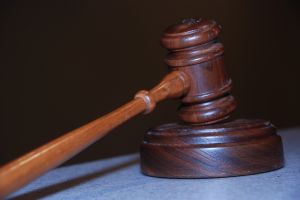
Your lawyers in Charleston read that this past Monday a 23-year-old man was sentenced to ten years in prison after pleading guilty to one count of driving under the influence (DUI) and one count of reckless homicide. The man’s sentence is suspended to three years of active time behind and will be given credit for nearly two years of house arrest. Once released, during his period of probation, the young man will not be allowed to touch alcohol. However devastating and life-altering this sentence will be, the real tragedy reveals itself in the events that brought the young man to court in the Charleston County Judicial Center.
According to the Charleston police incident report, the young man and his 21-year-old wife were speeding towards John’s Island after a night out at Downtown Charleston bar in May 2010. En route the man lost control of the vehicle at the Stono River bridge. Reportedly, the late night accident occurred as the result of the man trying to pass a friend he was racing in another vehicle. Charleston police found the car overturned on the bridge and subsequent investigations determined that the vehicle was traveling 70 mph in a 45 mph zone. The drunk driving accident took the life of the 21-year-old woman. She was pronounced dead at the scene. Her 23-year-old husband was left with a head injury in the form of a fractured skull. The driver said he had no recollection of the accident when he woke up in the hospital the next morning.
Because the man (defendant) could not remember anything about the accident he entered what is called an “Alford Plea,” which was allowed by the Circuit Judge because the defendant’s inability to remember the accident the Alford definition.
Recognizing that our readers may not be familiar with an Alford Plea, as it isn’t exactly common knowledge, your Charleston attorneys would like to provide some legal information on this type of plea agreement. In an Alford Plea, the criminal defendant does not admit to committing the act in question, but acknowledges that the prosecution (Ninth Circuit Solicitor’s Office) could likely prove the charge. In an Alford Plea, the court pronounces the defendant guilty and the defendant may plead guilty to the charges yet not admit all the facts that encompass the criminal act. This type of plea is common when the defendant has no recollection of the relevant events due to intoxication or amnesia. One reason for making this type of plea is to possibly avoid being convicted on a more serious charge. And as noted above, the acceptance of an Alford Plead is at the court’s discretion.
The Alford Plea arose from the Supreme Court’s decision in North Carolina v. Alford, 400 U.S. 25 (1970). In their decision the Supreme Court affirmed that there are no constitutional barriers in place to prevent a judge from accepting a guilt plea from a defendant who wishes to plead guilty and accept a prison sentence while still maintaining innocence. To quote the Supreme Court’s decision: “An individual accused of crime may voluntarily, knowingly, and understandingly consent to the imposition of a prison sentence even if he is unwilling or unable to admit his participation in the acts constituting the crime when a defendant intelligently concludes that his interests require entry of a guilty plea and the record before the judge contains strong evidence of actual guilt.” The entirety of the Alford decision can be found by clicking here.
Going back to the Charleston case, the presiding Circuit Judge, as reported by the Post and Courier, made a point to note that this drunk driving accident illustrates the all-too-common tragic consequences associated of drinking and driving. Thus, your Charleston accident lawyers at Howell Law strongly urge everyone to not drive after drinking. The costs of taking a cab home or volunteering to be a designated driver are no comparison to the potential losses that arise from drinking and driving. Please make the safe decision.